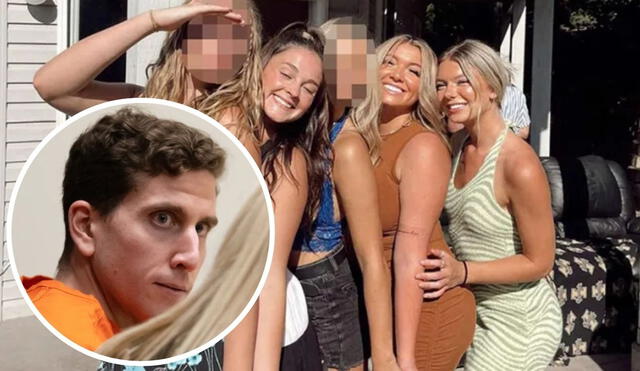Idaho murders: Bryan Kohberger case texts from surviving roommates released by court
New details about Idaho student murders suspect Bryan Kohberger were recently revealed in unsealed court filing.

For the first time, text messages exchanged between two surviving roommates from the Moscow, Idaho home—where four university students were fatally stabbed in a home invasion—have been made public following the release of a newly unsealed court filing. Kohberger is accused of killing Madison Mogen, Kaylee Goncalves, Xana Kernodle and Ethan Chapin in an off-campus house in November 2022.
Disturbing text messages exchanged between the two surviving roommates of the Idaho massacre have been made public as part of a shocking dossier, which also included a frantic 911 call placed after they found one of the victims unresponsive. The roommates, referred to in court documents as DM and BF, were the sole survivors when four of their friends were murdered in a home invasion.
911 call and terrifying text messages between Idaho murders surviving roommates
The roommates, listed in court documents only as DM and BF, seem to have been awake and discussing the possibility of a masked intruder about five minutes after the attack occurred. Prosecutors have asked the court to allow the text messages and their timeline to be introduced as evidence.
DM has been identified as the sole eyewitness who saw the intruder—described as a masked man with "bushy eyebrows"—inside the six-bedroom house on King Road. According to her statements to the police and audio from a neighboring security camera, the attacker is believed to have left the house shortly after 4:17 a.m. on November 13, 2022.
The filing discloses text messages exchanged between DM and BF from 4:22 to 4:24, along with messages DM sent to several of the victims before dawn and again around 10:20 a.m. Before sending the texts, DM attempted to call BF and three of the victims, but none of her calls were answered. "No one is answering," DM wrote to BF. "I'm rlly confused rn." Below is the timeline of the calls and messages:
- 4 a.m. — Suspect arrives and enters house.
- 4 a.m. to 4:17 a.m. — Murders occur and intruder leaves.
- 4:19 a.m. — Surviving roommate calls all three victims, but none answer.
- 4:22 a.m. to 4:24 a.m. — Surviving roommates, DM and BF, text one another from different rooms in the house.
- 4:27 a.m. — Surviving roommate calls the victims again without success.
- 4:32 a.m. – Surviving roommate texts Goncalves saying “Pls answer.”
- 10:23 a.m. – DM texts victims hours later, and still nobody answers.
- 11:39 a.m. – DM calls her father.
- 12 p.m. — 911 call placed from BF’s phone.

Excerpts from moments after the slayings. Photo: Fox News.
Bryan Kohberger's personality revealed in new defense motion
The trial is expected to begin on August 11 and last more than three months. Kohberger's attorneys claim in the motion that the 30-year-old man has autism spectrum disorder, or ASD, and executing him would violate the Eighth Regulation's ban on “cruel and unusual punishment.”
Anne Taylor, her lawyer, argued that repetitive behaviors such as rocking in place or Kohberger’s failure to make eye contact would be perceived by jurors as “strange, out-of-control, and even disrespectful of such a solemn proceeding” or interpreted as guilt or shame. She said her client had been examined by Dr. Rachel Orr, who found that Kohberger’s autism has a “significant impact on his daily life.”
Other sealed motions include one about whether the terms "psychopath" or "sociopath" can be used during the trial, and another by prosecutors about the presence of immediate family members in the courtroom during the trial. Some documents currently sealed will be redacted and made public, while others will remain sealed, the judge ruled.
